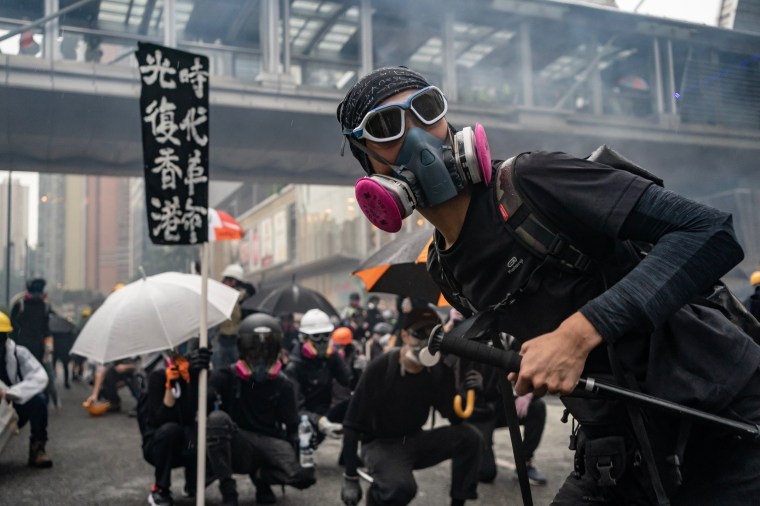China’s Hong Kong crackdown a cautionary tale
A cascade of convictions
The news in Hong Kong is a constant churn of trials, verdicts and sentencings stemming from the protests almost five years ago.
Among the most prominent cases is that of Jimmy Lai, 76, the founder of now-defunct pro-democracy tabloid Apple Daily whose national security trial has been criticized as politically motivated. He is accused of acting against the Hong Kong and Chinese governments by conspiring to print seditious publications and colluding with foreign countries to call for sanctions.
Hong Kong and Chinese authorities say the case against Lai is being handled in accordance with the law and is not about press freedom. Lai, who has pleaded not guilty, faces possible life imprisonment if convicted.
A verdict is also expected in coming months in Hong Kong’s biggest national security case, involving 47 pro-democracy Hong Kong politicians and activists accused of plotting to overthrow the government through an unofficial legislative primary election in July 2020.

The defendants, who also face life imprisonment, say their actions were part of normal opposition politics under Hong Kong law. Most have been held without bail since 2021, and all but 16 have pleaded guilty, which could reduce their sentences.
Thousands of less high-profile people have been arrested, as well. On Wednesday, a 26-year-old Hong Kong man, Chu Kai-pong, was sentenced to three months in prison for wearing a T-shirt that said “Liberate Hong Kong, revolution of our times,” a slogan used by protesters in 2019 that has since been ruled a violation of the national security law.
Other pro-democracy figures have opted to leave Hong Kong, many of them going to Taiwan, though that has not stopped the Hong Kong government from pursuing them. Since July, the Hong Kong national security police have announced bounties of 1 million Hong Kong dollars ($128,000) each on 13 activists living overseas, including in the United States and Britain.
Last month, activist Agnes Chow, 27, said she would not return to Hong Kong from graduate studies in Canada, citing intense scrutiny from police since her release from prison in 2021 on charges related to the 2019 protests and her fear that she would not be allowed to leave Hong Kong again.
Also in December, Tony Chung, 22, the former leader of a Hong Kong pro-independence group who was released from prison in June, said continued police surveillance and mental health issues had compelled him to flee to Britain, where he is seeking political asylum.
Hong Kong authorities have condemned the two activists and vowed to bring them to justice.
The events in Hong Kong have permanently altered the way people in Taiwan view China and “not in a good way,” Rigger said.
“The deep feeling is that the crisis in Hong Kong in 2019 and 2020 proves that Beijing cannot be trusted to allow territories’ influences to be different from the sort of heartland of the PRC,” she said, using the initials for China’s formal name, the People’s Republic of China.
Huang, the Taipei doctor, said voters should consider which was more important to them, preserving their freedoms or avoiding conflict.
“At least we have freedom and democracy in Taiwan now,” he said.

